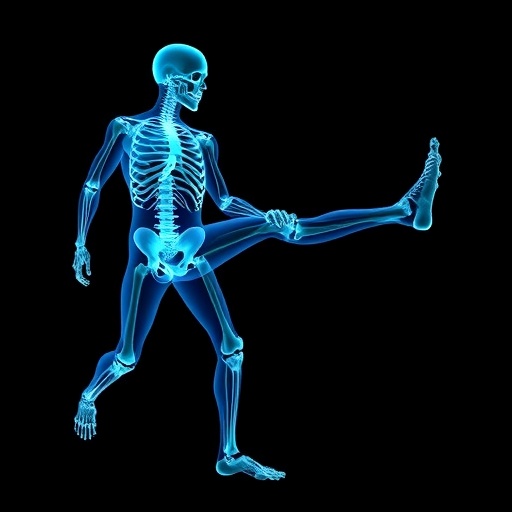Artificial Intelligence in Orthopedics: Bridging the Gap Between Technology and Patient Care
The exponential growth of artificial intelligence (AI) in recent years has made a significant impact across various fields, particularly in medicine. Among its numerous applications, orthopedics stands out as an area where AI technology is not only revolutionizing patient care but also transforming surgical procedures. The study conducted by Song et al. sheds light on the fundamentals of AI in orthopedics, discusses its current applications, and explores the future perspectives in this fascinating intersection of technology and healthcare.
In the realm of orthopedics, AI has shown promising potential in enhancing diagnostic accuracy. Traditional diagnostic methods can be time-consuming and sometimes fail to account for intricate details present in medical imaging. AI algorithms, particularly those utilizing deep learning techniques, can analyze images such as X-rays, MRIs, and CT scans with remarkable speed and precision. These algorithms are trained on vast datasets of previous cases, learning to identify patterns that might elude human practitioners. This advancement not only aids in quicker diagnosis but also reduces the risk of human error, eventually improving patient outcomes.
Another critical area where AI is making strides is in predictive analytics. With the help of machine learning models, orthopedic surgeons can assess the likelihood of various outcomes based on individual patient data. This capability empowers clinicians to make more informed decisions tailored to each patient’s specific circumstances. For instance, AI can help predict the success rates of different surgical procedures, allowing patients to have realistic expectations before undergoing operations. Such personalized medicine approaches are a testament to how AI can enhance patient care and contribute to shared decision-making between patients and healthcare providers.
Moreover, AI’s integration into robotic surgery systems is notable in the orthopedic field. These systems can provide unparalleled levels of precision during surgical procedures, potentially leading to less invasive techniques and improved recovery times for patients. Robotic systems powered by AI can assist surgeons in preoperative planning, intraoperative navigation, and postoperative assessments, ultimately enhancing the entire surgical continuum. The synergy of AI technology with robotic arms allows for greater dexterity and accuracy, especially in intricate procedures such as joint replacements.
The applications of AI extend beyond surgery and diagnostics; they also encompass rehabilitation. Recently, AI-driven rehabilitation platforms have been developed to tailor exercise regimens according to an individual’s recovery trajectory. These platforms utilize data collected from wearable devices to monitor patient progress, adjust treatment plans in real-time, and provide feedback that encourages adherence to rehabilitation protocols. By personalizing rehabilitation, AI ultimately enhances recovery times and improves functional outcomes for patients recovering from orthopedic surgeries or injuries.
Despite the significant benefits of AI in orthopedics, the integration of these advanced technologies is not without challenges. Concerns regarding data privacy, security, and the ethics of using AI in healthcare remain prevalent. As AI systems often rely on the collection and analysis of sensitive patient data, ensuring that this information is protected is paramount. Furthermore, there is ongoing discourse about the potential bias inherent in AI algorithms, as these systems can inadvertently reflect existing disparities present in the data upon which they are trained.
To address these concerns, ongoing efforts are being made to establish regulatory frameworks that govern the use of AI in medical practice. Organizations are striving to create guidelines that ensure the ethical implementation of AI in orthopedics, promoting transparency and accountability in the technology’s development and deployment. By fostering collaboration between relevant stakeholders, including clinicians, AI developers, and patients, the orthopedic community can work towards creating solutions that prioritize both technological advancement and patient welfare.
The future of AI in orthopedics appears promising as research continues to expand. Recent advancements in natural language processing (NLP) might soon enable AI systems to better interpret unstructured data such as clinical notes, further enhancing diagnostic capabilities. Additionally, ongoing innovations in imaging technologies will complement AI’s ability to analyze and interpret complex medical images. As these technological advancements converge, the potential for AI to streamline workflows, improve patient care, and enhance clinical outcomes grows exponentially.
In conclusion, the incorporation of artificial intelligence into orthopedic practice is not merely a trend but rather a revolutionary force that is reshaping the landscape of patient care. By leveraging technologies such as machine learning and robotics, healthcare professionals can achieve unprecedented levels of precision in diagnostics, surgical procedures, and rehabilitation. As we navigate the promise and pitfalls of AI in this critical field, a commitment to ethical practices and continuous innovation will be essential in realizing its full potential.
The collaboration between technology and medicine presents endless possibilities, and orthopedic practice stands to benefit significantly from the synergistic relationship between the two. As AI continues to evolve, its role in orthopedics is likely to expand, offering even greater enhancements in patient care and outcomes. Embracing this technological revolution will be key for orthopedic professionals aiming to provide the highest level of care for their patients.
As the orthopedic community looks ahead, optimism prevails that artificial intelligence will not only enhance the precision of surgical interventions and diagnostic accuracy but also bring about a paradigm shift in how orthopedic care is delivered. By aligning with innovations in AI, orthopedic practitioners can look forward to a future where technology and human expertise combine seamlessly to provide superior care for their patients.
Subject of Research: Artificial intelligence in orthopedics
Article Title: Artificial intelligence in orthopedics: fundamentals, current applications, and future perspectives
Article References:
Song, J., Wang, GC., Wang, SC. et al. Artificial intelligence in orthopedics: fundamentals, current applications, and future perspectives.
Military Med Res 12, 42 (2025). https://doi.org/10.1186/s40779-025-00633-z
Image Credits: AI Generated
DOI:
Keywords: AI, orthopedics, robotics, diagnostics, machine learning, patient care, rehabilitation, predictive analytics, data privacy, ethics.




